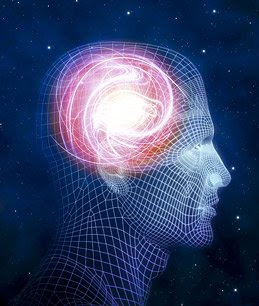Throughout the duration of this blog project, my knowledge of the nature vs. nurture topic has expanded. I began with the basic information about the two: nature says that genes influence behavior, and nurture states that environment affects behavior. I was aware about some controversial topics such as homosexuality and obesity, but I was not fully knowledgeable about the details until I further investigated the topic.
The question of inherited or acquired traits are at the center of this entire debate. People do not know what traits can be attributed to what cause. For example, if a child is obese, then who is to blame? Parents or the environment? An interesting concept that I came across while researching was the “genes being affected by genes” statement. By this, I mean that a husband and wife raise a child in their own home and teach them everything, confining the child to within home limits. What is this considered as? Parents share genes, yet parents also serve as the nurturing component. I thought about this and decided that this situation is mostly genetic. A child gets his or her genes from parents, and the entire situation is connected by genetics.
The definition of nature vs. nurture is “a traditional and long-standing disagreement over whether heredity or environment is more important in the development of living things, especially human beings.” This then lead me to think…what exactly is environment? When I think of the word “environment,” the idea of a person’s surroundings comes to mind. There could also be a family environment, one could argue for that. However, parents’ genes and the child’s genes are very similar, and being around a similar set of genes is not considered nurture. This is also supported by twin studies.
Observing parent-child behaviors is much like observing twins interact. Twins share genetic material as well as social and cultural environments. Keeping them together would do no benefit in observing their behaviors; they need to be reared apart. When twin behavior is observed when raised together, researchers are most likely to attribute behavior to nature, not nurture.
Another intriguing facet of my discoveries includes the concept of feral children. Investigating this topic made me realize the importance of education in order to become a human (Yes, that may sound awkward: having to be educated in order to act like a human being…but it is true). When you think about it, people must learn how to eat with etiquette, walk, talk, etc. These abilities do not come inborn; they must be learned. However, natural bodily functions are excluded because a child does not need to learn how to breathe and blink (these reflexes are more towards the biology aspect, which I will not delve into at the moment).
A few weeks ago, I caught myself in a thought-provoking conversation with my roommate. She asked me what makes us human. I came up with several ideas such as language and thought; however, animals communicate and analyze situations as well. The answer was a much broader one. Culture makes us human. Then I thought to myself, culture is learned and is not inborn…so this even strengthens the nurture argument. Who we are and how we behave directly correlates to our lifestyle and culture.
The statement of culture is learned reminded me of the statement “behavior is learned” from psychology. The entire field of learning psychology, or behaviorism, is to show that behavior is indeed a learned trait. The nurture movement was driven by the social sciences. Sigmund Freud stressed the importance of childhood experiences, and B.F. Skinner proved that behavior can be conditioned. Bringing psychology into the field creates a whole new world. A simple nature vs. nurture argument can be expanded to include several subjects such as biology, chemistry, psychology and anthropology, just to name a few.
This expansion of the nature vs. nurture theory led me to think about all behavioral traits and abilities that humans are born with or acquire. It has made me question my own traits, as presented in a previous blog. I have thought about how I have come to like or dislike certain things. Although I find lots of evidence for the nurture theory, it does not mean that I deny nature. Evidence is necessary in order to form an argument.
In the end, both nature AND nurture play a key role in human development. Nature is there before birth, and nurture presents itself after birth. Most psychological behaviors are connected to a biological behavior. As humans, we have the capacity to adapt to new situations and change our behaviors. Genetics does influence behavior and may predispose us to some ailment; however, genetics is not a prediction of life in the future. What you do and how you live your life is what matters most. While nature may be better at explaining mating, nurture better explains differences in cultures. Ultimately, it is the interaction between nature and nurture that determines human behavior.

Thursday, October 29, 2009
Subscribe to:
Post Comments (Atom)

No comments:
Post a Comment